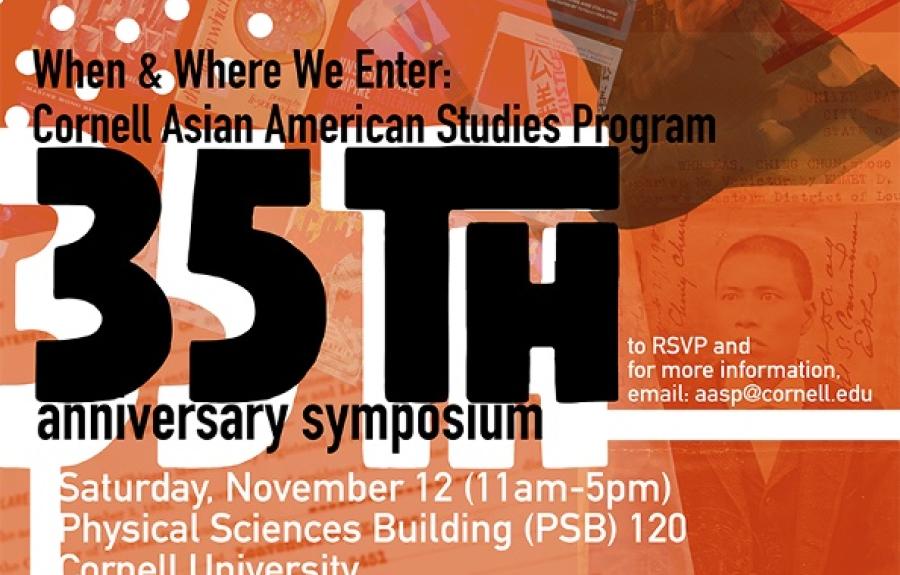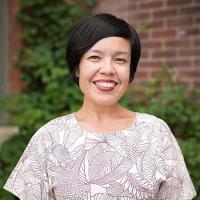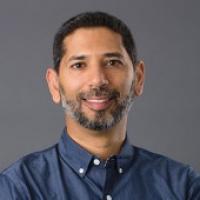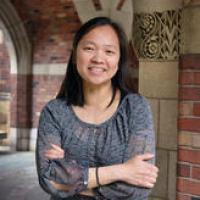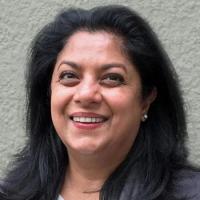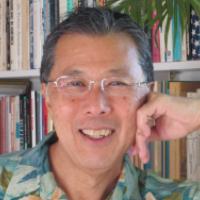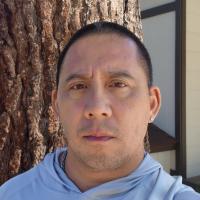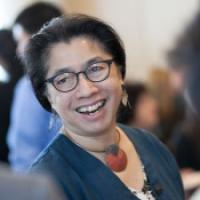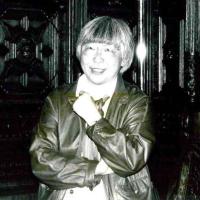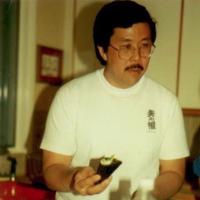When & Where We Enter: Cornell AASP 35th Anniversary
Saturday, November 12, 2022
Physical Sciences 120 or Zoom (pre-registration required).
The use of masks for in-person attendees is strongly encouraged.
Symposium Schedule
10:30-11:00 a.m. Continental Breakfast
11:00 a.m.-1:00 p.m. "Talk-Story: A Collective Oral History of Cornell's AASP," featuring Gary Okihiro, Shelley Wong, Viranjini Munasinghe, Derek Chang, and Christine Bacareza Balance
(In-person and via Zoom, pre-registration required and restricted to cornell.edu addresses.)
1:00-2:00 p.m. Lunch
2:00-4:00 p.m. "Asian American Studies: In the Field, in the University, and for the Future," featuring Pawan Dhingra, Mary Lui, Dylan Rodriguez, and Thuy Linh Tu
(In-person and via Zoom, pre-registration required and restricted to cornell.edu addresses. This panel will also be live-streamed to our Cornell Asian American Studies Facebook page.)
4:00-5:00 p.m. Reception
This event is free and open to the public. If you will join us in-person, please RSVP to aasp@cornell.edu on or before Monday, November 7 (for catering purposes).
Campus Resources and Information
Parking
Parking at Cornell requires some planning, even on weekends. This symposium is located on Central Campus in the Physical Sciences Building. Please follow these links for basic information about parking, details about lots that are unrestricted on weekends, and a color-coded map of campus lots (look for lots marked in yellow without a blue star).
COVID Guidelines
Visitors and event attendees should stay home if they feel ill, and are strongly encouraged to take an antigen test in advance of attending the symposium event.
Masks are not required, but are strongly encouraged at this event. We will have extra masks available at the registration table. Please follow this link for more information on COVID protocols on campus.
Panelist Biographies
Christine Bacareza Balance is Associate Professor of Performing & Media Arts and Asian American Studies. Her writings on former Philippine First Lady Imelda Marcos, Asian American YouTube artists, Bruno Mars, Glee’s karaoke aesthetics, and spree killer Andrew Cunanan have been published in Women and Performance: a feminist journal, Journal of Asian American Studies (JAAS), Women's Studies Quarterly (WSQ), and Theatre Journal. Her first book, Tropical Renditions: Making Musical Scenes in Filipino America (Duke University Press, 2016), examines how the performance and reception of post-World War II Filipino/Filipino American popular music compose Filipino identities, publics, and politics. It received the Best First Book award from the Filipino Studies caucus of the Association for Asian American Studies (AAAS). Her current book project, Making Sense of Martial Law, analyzes how the former President Ferdinand Marcos and First Lady Imelda Marcos employed the sensorial and sensational, during their 21-year dictatorial rule, and how U.S.- and Philippines-based performances, events, and cultural objects critique the “Marcosian imaginary,” modeling new forms of cultural memory. With Prof. Lucy San Pablo Burns (UCLA), she is co-editor of the artist-scholar anthology, California Dreaming: Movement & Place in the Asian American Imaginary (University of Hawai’i Press, 2020).
She is a board member of CinemaSala, a platform showcasing Filipino & Filipino American work in film and the performing arts; an advisory board member for the Pop Music Conference and for the Asian American Pacific Islander (AAPI) Victory Alliance think tank. Balance is one-eighth of the New York-based indie rock band The Jack Lords Orchestra.
Derek Chang is an historian who teaches and researches the Asian American past, comparative racial formations in the United States, and American white supremacy and nationalism. He is author of Citizens of a Christian Nation: Evangelical Missions and the Problem of Race in the Nineteenth Century (Pennsylvania, 2010), which examines the comparative histories of Black Southerners and Chinese migrants on the Pacific Coast when the United States moved from the period of Emancipation and relatively open immigration to a period of segregation and exclusion. He is currently researching and writing a book-length manuscript about Asians in the segregated South. He is particularly interested in local forms of community-building, collaboration, and conflict, and in the relationships between those local sites of social and racial formation and the political economy of the Jim Crow South. He is also working on a project that follows the journey of a Chinese student at the New York School of Social Work in the 1930s. He is tracing her fieldwork research on social planning, social work education, public health, and home economics from New York City to the segregated South and Appalachia.
Pawan Dhingra is an author, professor, and former curator and senior advisor of the Smithsonian Institution exhibition, Beyond Bollywood: Asian Indian Americans Shape the Nation. His byline includes The New York Times, CNN, Time Magazine, The Conversation, and many other venues, and he and his work have been profiled in The Washington Post, NPR, The Guardian, Times of India, and elsewhere. His most recent book is Hyper Education: Why Good Schools, Good Grades, and Good Behavior Are Not Enough (New York University Press 2020), which The Wall Street Journal has said, “offers a fascinating look at a growing subculture,” and which author Min Jin Lee has said, "gets to the root of education obsessions." He speaks from this work in the Netflix documentary, Spelling the Dream. He is the author of the multiple award-winning Life Behind the Lobby: Indian American Motel Owners and the American Dream (Stanford University Press, 2012), which also has been profiled nationwide and internationally. He also authored the award-winning Managing Multicultural Lives: Asian American Professionals and the Challenge of Multiple Identities (Stanford University Press, 2007). Professor Dhingra co-authored Asian America: Sociological and Interdisciplinary Perspectives, which is in its second edition (Polity Press, 2014 and 2021). He is the President-elect/President of the Association for Asian American Studies. He has served as president of the board of the South Asian American Digital Archive.
Before serving as associate provost and associate dean of the faculty, his other professional service includes having served as the Faculty Equity and Inclusion Office in the Office of Diversity, Equity, and Inclusion at Amherst College. He has served as chair of the Asia and Asian America section and as secretary/treasurer of the International Migration Section of the American Sociological Association, on journal boards, reviewer for exhibitions, book presses, foundations and journals, and other commitments. He has received various grants, fellowships, and teaching and research awards. He has spoken to community, media, and academic audiences on topics of immigration, Asian America, entrepreneurship, race, education, DEI, and inequality. He is an active mentor.
Professor Dhingra joined Amherst College after serving as professor and chair of sociology and professor of American studies at Tufts University, as an associate professor of sociology at Oberlin College, and as an assistant professor of sociology at Bucknell University.
Mary Lui is Professor of American Studies and History. Her primary research interests include: Asian American history, urban history, women and gender studies, and public history. She is the author of The Chinatown Trunk Mystery: Murder, Miscegenation, and Other Dangerous Encounters in Turn-of-the-Century New York City (Princeton University Press, 2005). The book uses a 1909 unsolved murder case to examine race, gender, and interracial sexual relations in the cultural, social and spatial formation of New York City Chinatown from 1870-1920.
Viranjini Munasinghe is an historical anthropologist working in the Caribbean (Trinidad) and the Asian Diaspora in the Americas. Her initial research focused on the relation between ethnicity and nationalism and the politics of exclusion in nation building projects. Her research specifically focuses on Indo Caribbeans who were brought as indentured labor to the New World when slavery was abolished in the British Caribbean. The New World context of the Caribbean allow for intriguing formulations of modernity and nationalism. Munasinghe is particularly interested in a comparative understanding of how narratives of mixture, like creolization or multiculturalism operate to exclude citizens from the nation despite their overt promise of inclusion. She is also interested in epistemological issues having to do with the articulation of certain "theoretical concepts" like race, ethnicity and nation with their lay and political discursive forms and the implications of such entanglements for disciplines, theory and politics. Her current research explores how nations are constituted through projects of comparison in different empirical settings that include the Americas and Asia.
Gary Y. Okihiro is professor emeritus, Columbia University, and visiting professor, Yale University. He is the author of thirteen books, received an honorary doctorate from University of the Ryukyus (Okinawa), and is the recipient of the lifetime achievement award from the American Studies Association and the Association for Asian American Studies.
Dylan Rodríguez is a teacher, scholar, and collaborator who is committed to building and supporting abolitionist, liberationist, anti-colonial and other forms of radical community and movement. Since 2001, he has maintained a day job as a Professor at the University of California, Riverside. He was elected to serve as President of the American Studies Association in 2020-2021, and in 2020 was named to the inaugural class of Freedom Scholars. In 2021, he was appointed Co-Director of the Center for Ideas and Society.
Dylan is the author of three books, most recently White Reconstruction: Domestic Warfare and the Logic of Racial Genocide (Fordham University Press, 2021), which won the 2022 Frantz Fanon Book Award. Most importantly, Dylan appreciates participating in all forms of collective study, thought, and planning that build capacities to survive and revolt against oppressive conditions.
Thuy Linh Tu is Professor of American Studies in the Department of Social and Cultural Analysis at NYU, where she has also served as the Director of Graduate Studies and Faculty Director of the NYU Prison Education Program’s Research Lab. She is the author or editor of five books, most recently, Experiments in Skin: Race and Beauty in the Shadows of Vietnam (Duke UP, 2021), which was honored with the PROSE Award for Excellence in the Humanities, as well as the R.R. Hawkins Award, presented by the Association of American Publishers and a Victor Turner Prize from the Society for Humanistic Anthropology section of the American Anthropology Association.
Shelley Wong received her B.A. and M.A. degrees in English from Simon Fraser University and her Ph.D. in Ethnic Studies from the University of California at Berkeley. She has published articles on twentieth-century poets such as Charles Olson, Mina Loy, and the anonymous Chinese poets from the Angel Island Immigration Station, and prose writers including Toni Morrison, Theresa Hak Kyung Cha, Carlos Bulosan, and Joy Kogawa. She is currently working on a book manuscript that focuses on race, time, and trauma in Asian American and African American literature. Her teaching interests include twentieth and twenty-first North American literatures, race and the university, geography and critical theory, and race and temporality. She directed the Asian American Studies Program in 1994-95, 1998-2006, 2013-14, and 2017-18.
A Note on Our 35th Anniversary Title
We take our symposium’s title—“When and Where I Enter”—from a foundational essay/book chapter by Gary Okihiro, award-winning historian and the second director of Cornell’s Asian American Studies Program. His essay/chapter title references African American women’s historian Paula Giddings’ When and Where I Enter: the Impact of Black Women on Race and Sex in America, itself a citation of philosopher/educator Anna Julia Cooper’s earlier theoretical formulation. As Okihiro writes: “In 1886, African American educator Anna Julia Cooper told a group of African American ministers: ‘Only the BLACK WOMAN can say ‘when and where I enter...then and there the whole Negro race enters with me.’ Cooper’s confident declaration held profound meaning. African American men bore the stigma of race, but African American women bore the stigmata of race and gender. Her liberation, her access to the full promise of America, embraced the admission of the entire race.” Throughout his essay/chapter, Okihiro traces genealogies of the West’s imaginative constructions of Asia and Asians—from Hippocrates and Aristotle, to explorers Marco Polo and Christopher Columbus, and even William Shakespeare—that paralleled and fed into histories of European and American “eastward and westward thrusts” into Asia—as a site for markets, military and naval outposts, as well as the extraction of natural resources. These resources included cheap labor as Asians, along with other people of color, worked and toiled alongside each other on the ‘plantations’ of America’s “southern and western frontiers.” On these various plantations—from Hawaii to the U.S. South—diverse groups of laborers rose up together in rebellion, fighting for freedom and against their exploitation. “(E)ntry into the American community,” Okihiro argues, “however enfeebled by barriers to full membership, parallels the earlier entry into historical consciousness, and the ‘when and where’ of both moments are engendered/enabling, generative/transformative, extravagant/expansive.”
A scholar trained in African history and committed to a “Third World studies” framework, Gary Okihiro models for us an orientation that is both transnational and domestic, discursive and material, systemic and coalitional. Through his scholarship and teaching, he reminds us how African American scholars such as Cooper and Giddings have and continue to provide U.S. ethnic studies with generative formulations for our studies of race, power, and social formation. His citational practice demonstrates how these theories “travel,” helping us to constantly reframe and reconsider the when, where, and how of Asians & Asian Americans’ “arrival” in American history, literature, imagination and institutions such as Cornell University. In doing so, this weekend, we hope to also reframe and reconsider the horizons of Asian America—its history, politics, culture, and study.
Program History
The Asian American Studies Program at Cornell was established in 1987 as “a university-wide program to promote teaching, research and cultural activities related to Americans of Asian heritage” and to serve “as a teaching and resource center to serve the educational needs of the greater Cornell community as well as those of the Asian American community.” Professor Lee C. Lee, faculty of Human Development in the College of Human Ecology, was the founding director.
As Lee herself noted, the Program’s establishment “took many years of work by different generations of students and faculty.” Since the early 1970s, students had been advocating for and organizing on behalf of Asian American studies. Students formed organizations, organized workshops and conferences, created student-led study groups, invited scholars and activists to campus to speak, and led and participated in demonstrations, rallies, marches, and protests. Asian American students often worked in coalition with other students not only to advocate for and demand Asian American studies at Cornell but in support of calls for other so-called ethnic studies programs, including what would become the American Indian and Indigenous Studies Program and the Latino/a Studies Program, and for increased University resources for minority student programs more generally.
During the mid-1980s, student activism at Cornell coalesced with regional and national movements for Asian American studies. As the East Coast Asian Student Union (ECASU) mobilized to push for and support the institutionalization of Asian American studies programs, the University began to respond to almost a decade and a half of activism on campus. Students pressed their advantage with rallies at Day Hall in 1984 and 1985 demanding the hiring of minority faculty, increased resources for minority student academic support, and the formation of “Hispanic American and Asian American studies programs.” It was in this context that Lee prevailed upon Vice Provost Barry Adams to support the formation of a committee to “explore the possibilities for establishing an academic program in Asian-American Studies at Cornell” in the spring of 1986.
After a year of committee-led research, surveys, forums with students, and a conference of scholars and community advocates and, crucially, as activists continued to apply pressure, the University officially established the Program in July 1987.
It would take a semester for the first course offered by the Program to appear – “Asian Americans: From Exclusion to ‘Model Minority,’” taught by visiting scholar in the Department of Rural Sociology Sharon M. Lee. From that modest start, the Program, over the next thirty-five years, would develop into a leader in the field of Asian American studies while continuing to offer Cornell students an array of course offerings in anthropology, literary studies, history, media and visual studies, performance studies, and urban studies. The faculty would grow from one faculty director and an adjunct associate director at the time of its founding to a high of five core faculty during the first decade of the 2000s. It currently has four core faculty and five affiliate faculty. It would eventually establish an undergraduate minor in Asian American studies and, more recently, a graduate minor field.
Read more about the founding of the Cornell Asian American Studies Program in this recent feature article by the Arts & Sciences Communications team.

